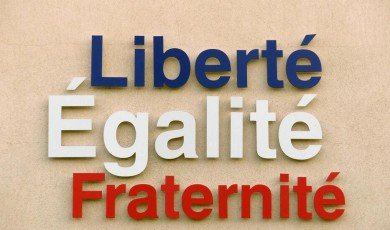The 2024 French Legislative Elections: An Unexpected Ballot and Its Consequences for Governance in 2025
By Political Analysis Blog – Your in-depth source for French elections, political communication, and citizen participation.
Introduction: A Pivotal Moment in French Politics
In June and July 2024, France experienced one of the most unexpected political earthquakes of the Fifth Republic. The early dissolution of the National Assembly by President Emmanuel Macron led to legislative elections that reshuffled the political deck in ways few could have predicted. The aftermath has raised pressing questions about the stability and direction of French governance, as factions old and new jostle for influence. As we look ahead to 2025, there is wide speculation and palpable uncertainty about how these results will shape the country's policies, institutional stability, and civic engagement.
In this comprehensive analysis, we delve into the factors that made the 2024 French legislative elections so unpredictable, explore the key outcomes, and take stock of the potential long-term consequences for governance. We also reflect on what these elections reveal about contemporary electoral dynamics, citizen participation—including the rise of the blank vote—and the role of political communication in a rapidly evolving digital landscape.
Main Research: Unpacking the Shockwaves and Their Implications
1. The Context: Why 2024 Was Different
The 2024 legislative elections in France did not arise from a scheduled cycle, but from a dramatic decision by President Macron to dissolve the Assembly after the results of the European elections. This move, initially seen as a gamble to regain control, unleashed a maelstrom of political activity:
- Polarization Peaks: The rise of political extremes—both on the right and left—was sharper than in previous cycles. The National Rally (Rassemblement National) and the New Popular Front (Nouveau Front Populaire) both surged, fragmenting the centrist vote and challenging the traditional parties' hold on governance.
- Mobilization and Abstention: Turnout was surprisingly robust, especially among young voters, yet the blank and null vote reached historic highs, reflecting both renewed engagement and profound disillusionment.
- Media and Digital Campaigns: The campaign was marked by aggressive use of social media, viral debates, and rapid-response digital communication, reshaping how citizens connected to the issues and candidates.
2. The Results: Fragmentation and a New Parliamentary Landscape
The outcome was a National Assembly with no clear majority. For the first time in decades, France faced a complex, tripolar parliament, with the far-right, the left-wing coalition, and a weakened centrist bloc each holding significant but insufficient seats to govern alone.
- Rise of the Far-Right: The National Rally achieved an unprecedented number of seats, reflecting deep anxieties over security, immigration, and national identity.
- Resurgence of the Left: The New Popular Front capitalized on social grievances, particularly among youth and workers, promising radical economic and environmental policies.
- Collapse of Traditional Centrism: Macron’s Ensemble bloc suffered major losses, challenging the technocratic style of governance that had prevailed since 2017.
The impact has been legislative deadlock, with attempts at coalition-building marked by mistrust and policy divergence. The 2024 parliament is now characterized less by stable alliances than by shifting deals and minority governments.
3. The Consequences for Governance in 2025
-
Institutional Fragility:
France’s semi-presidential system relies on coherent majorities to function efficiently. The fragmented assembly of 2024-2025 threatens to paralyze policy-making, with the executive potentially relying on constitutional maneuvering (e.g., Article 49.3) to pass critical laws. This risks further alienating the public and weakening confidence in democratic institutions. -
Polarized Policy Agenda:
With no dominant bloc, policy compromises are more difficult. Key issues such as pension reform, green transitions, immigration, and economic recovery will likely result in watered-down or highly contested legislation. The public’s expectations for rapid change may go unmet, fueling further polarization and protest movements. -
Rise of Civic Innovation and Participation:
The 2024 elections have spurred debate about participatory democracy. The high rate of blank votes and a surge in youth mobilization suggest citizens are eager for more direct input, beyond periodic voting. Experiments in digital democracy, citizens’ assemblies, and local participatory budgets may gain traction as conventional party politics struggle to deliver stability. -
Transformation in Political Communication:
This cycle saw political actors intensifying their presence on platforms like TikTok, Twitch, and Twitter, reaching younger and more diverse audiences. The success—or failure—of these strategies will shape future campaign models. As traditional televised debates compete with online influencers and “fact-checkers,” the rules of political persuasion are being rewritten.
4. The Role of Civic Engagement and the Future of the Blank Vote
One striking feature of the 2024 legislative contest was the rise in the blank vote. Once dismissed as apathy, the blank vote is increasingly interpreted as an active stance—a demand for alternatives beyond the existing party choices. France’s ongoing debate about recognizing the blank vote as a political signal (for instance, influencing seat allocation or triggering new elections) is likely to intensify in 2025, especially if parliamentary deadlock persists.
At the same time, youth engagement surged—not just as voters, but as online activists, campaign volunteers, and independent observers. The generational shift suggests new forms of political expression and participation could temper France’s institutional gridlock, especially if institutional reforms accommodate these voices.
5. Lessons for Political Communication in the Digital Age
The 2024 campaign reaffirmed that digital platforms are now central to political communication in France. Viral content, influencer endorsements, and rapid-response teams are as influential—if not more—than traditional media spots and televised debates. Political parties that master these tools have a decisive edge, but they also face greater scrutiny regarding misinformation, “deep fakes,” and echo chambers.
The necessity for transparent, responsible digital engagement is clear. The challenge for 2025 will be fostering civic literacy and ensuring that online spaces become venues for informed debate, rather than polarization.
Conclusion: Navigating Uncertainty, Embracing Renewal?
The 2024 French legislative elections will be remembered as one of the most unpredictable—and consequential—ballots in recent history. The current parliamentary fragmentation poses real risks for governance, complicating both the executive’s agenda and citizens’ trust in their institutions. Yet, within this uncertainty lies a profound opportunity for democratic renewal.
The surge in youth engagement, the prominence of the blank vote, and the flourishing of digital political communication point to a society seeking new ways to participate, influence, and hold leaders accountable. As France heads into 2025, the challenge will be to convert this civic energy into meaningful reforms—whether through electoral system changes, enhanced participatory mechanisms, or renewed political alliances.
For observers, analysts, and citizens alike, the 2024 legislative elections are not just a moment of disruption, but a catalyst for debate about the future of French democracy: its resilience, legitimacy, and capacity to adapt in an era of profound change.









